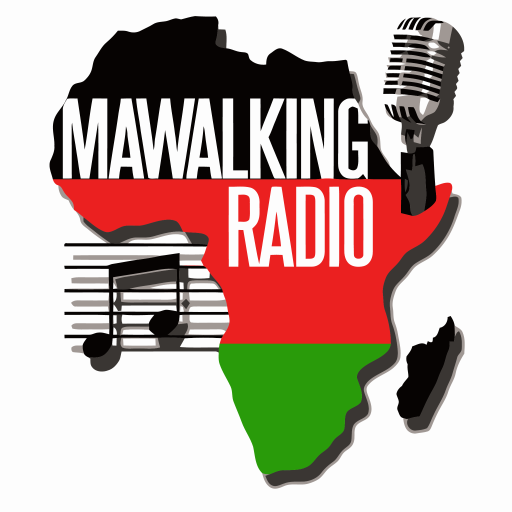
Barbara Kanam: The African Diva Who Defined Congolese Music
Introduction to Barbara Kanam
Barbara Kanam Mutund, better known by her stage name Barbara Kanam, is one of the most celebrated figures in Congolese music. Born on September 27, 1973, in Bukavu, Zaïre (now the Democratic Republic of the Congo), Kanam is a multifaceted artist—singer-songwriter, music producer, actress, and philanthropist. She has earned a reputation as “The African Diva” for her immense contributions to African music, particularly Congolese Rumba, Soukous, and world music. Currently, she serves as the Director General of the Cultural Promotion Fund in the Democratic Republic of the Congo.
Early Life and Musical Beginnings
Barbara Kanam grew up in a large family of twelve children. Her father was an executive at the Sheraton Hotel in Lubumbashi, but financial hardships struck when he became unemployed. This prompted Kanam to take on a pivotal role in supporting her family. She initially pursued international business studies at the University of Pretoria, South Africa, but her passion for music led her to join several choirs in Soweto, where she cultivated her love for gospel music.
Although her father disapproved of her musical aspirations, Kanam found her way into music while balancing her studies and work. It was during a performance in Abidjan, Ivory Coast, that she caught the eye of Ivorian reggae star Alpha Blondy and producer Dodo Koné, setting her on the path to stardom.
The Breakthrough: “Mokili” and Kanam’s Rise to Fame
In 1999, Barbara Kanam released her debut studio album, Mokili, under the production of Dodo Koné. The album featured the powerful, gospel-influenced track “Mokili Ekoleka,” which became an anthem of reflection on life’s fleeting nature. The song garnered her significant attention and earned her a television appearance at the Kora Awards, one of Africa’s most prestigious music ceremonies.
This debut marked the beginning of Kanam’s rise in the African music scene. Her unique blend of Congolese rumba, gospel, and soukous resonated deeply with audiences across the continent, establishing her as a fresh and powerful voice in African music.
Award-Winning Album Téti and International Recognition
After a brief hiatus, Kanam returned to the music world in 2003 with her sophomore album, Téti. This album was a game-changer for her career. Its lead single, “Bibi Madeleine,” a tribute to her grandmother, became a major hit and propelled her into the spotlight. Téti earned her the Kora Award for Most Promising African Female Artist, solidifying her position in the African music industry.
This success opened doors for her internationally. The album’s accolades included two consecutive Best Female of Central Africa awards at the Kunde d’Or in Burkina Faso, along with Best Female Video at the Black Music Awards. Kanam’s performances became a staple in major music festivals and award shows, further elevating her stature in African and world music.
Creating a Legacy: Founding Kanam Music and the Success of Karibu
In 2008, Barbara Kanam parted ways with Dodo Koné’s record label and took control of her artistic direction by founding her own label, Kanam Music. This move empowered her to experiment with new sounds and solidify her artistic independence. In 2010, she released her third studio album, Karibu, meaning “welcome” in Swahili. This album, blending Congolese rumba and other African rhythms, received widespread acclaim and won her the Okapi Award for Best Female Artist.
The album featured collaborations with prominent artists like Fally Ipupa and demonstrated her ability to innovate while staying true to her Congolese roots. Kanam’s talent in balancing traditional and modern African music solidified her as a torchbearer for female artists on the continent.
Zawadi: A Gift to African Music
In 2015, Kanam released her fourth studio album, Zawadi, which means “gift” in Swahili. The album was a symbolic reflection of her growth as an artist and human being, as it explored themes of love, identity, and resilience. Zawadi featured hits like “Jardin d’Amour,” which earned her the Poro Award for Best Music Video and Ndule Awards for Best Female Voice.
Her work on Zawadi gained international recognition, and she was nominated for Best Female Artist at the 2015 MTV Africa Music Awards. The album not only showcased her vocal prowess but also cemented her legacy as one of the most versatile and impactful African musicians of her generation.
Philanthropy and Business Ventures
Beyond her music, Barbara Kanam is also known for her philanthropy and entrepreneurship. She is the owner of Kanam Luxury, a shop in Kinshasa that offers branded luxury goods, including her own line of champagne. Her influence extends beyond the music industry, as she uses her platform to empower women and promote cultural initiatives.
Kanam’s philanthropic efforts are also notable. She has been involved in numerous humanitarian causes, including promoting health awareness through songs like “Africa Stop Ebola,” which aimed to educate people on the Ebola epidemic in 2014. Her role as a cultural ambassador for the DRC shows her commitment to using her influence for positive change.
A Continuing Legacy
Barbara Kanam’s influence on African music is undeniable. Her ability to cross genres—from rumba and soukous to gospel and world music—has made her a beloved figure across the African continent and beyond. As she continues to release music and engage in cultural projects, her legacy only grows stronger.
Barbara Kanam is not just an African diva; she is a symbol of resilience, creativity, and empowerment for African women. With a career spanning more than two decades, she remains an indomitable force in music and continues to inspire future generations of African artists.



